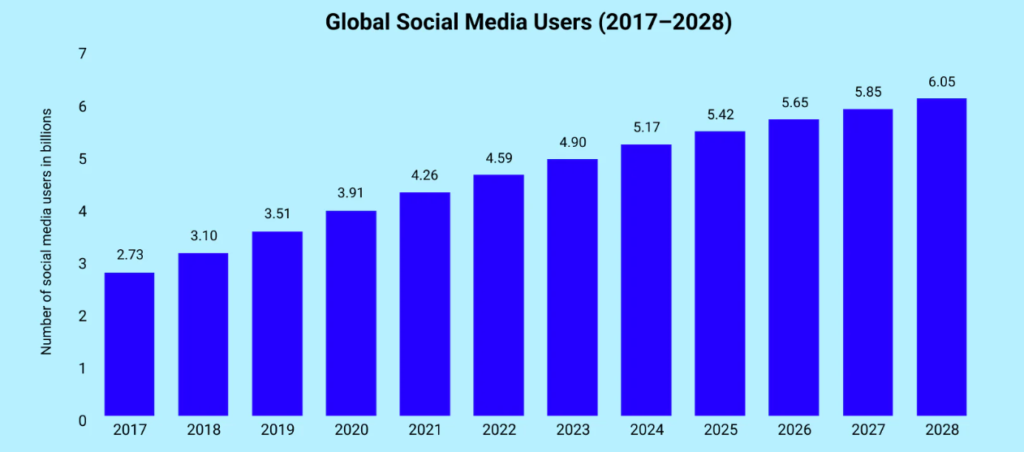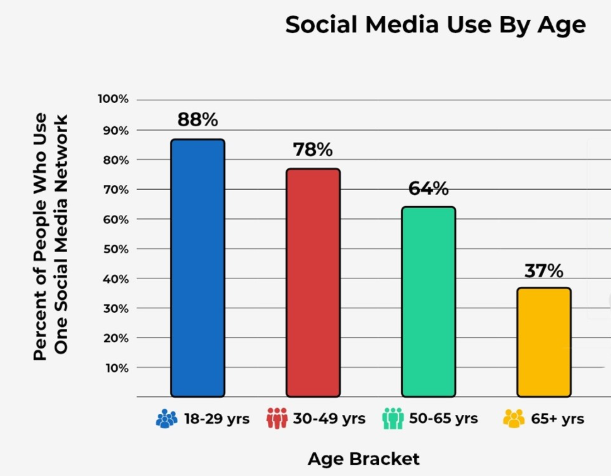Resilience means the ability to “bounce back or recoil.” from difficult Situations. In the age of social media, it is hard to stay resilient because every individual faces different challenges that lead to feelings of overwhelm and stress that many of us struggle to manage. From social media to online trolling, social media can be stressful.
Thus, developing resilience in the age of social media is possible with great skills.
The Negative Effect In The Age Of Social Media On Resilience
Social media has made it easy for individuals to compare themselves and feel inferior. Online trolling can be overwhelming and lead to feelings of depression. The continuous pop-up of notifications can be disturbing and a cause of anxiety.
The modern age has also altered the way people connect. Social media have made it easier to interact with others, but they have also made different challenges for developing healthy relationships. The problem is that the lack of face-to-face conversation can make it hard to build empathy, which is the main element of resilience.
2024 Social Media Usage Globally
As of January 2024, there were about 3 billion users on social media in the world. Approximately, there are 6.5 billion people who use social media globally. However, more than half of the total population is presently using social media in different forms.

Social Media Usage By Age
It looks natural. In the digital age, there’s no doubt that the young generation is most likely to use social media. Here is the data given below from Pew:

Developing Resilience in the age of Social Media
Despite the social media challenges, creating resilience is still feasible. Here are some techniques for developing resilience:
- Mindfulness Technique: It is the technique of being completely involved in the present moment. By practicing mindfulness techniques through mindful movement, people can empower their potential to stay concentrated, even in the middle of social media challenges.
- Fix social boundaries: Fixing boundaries around social use can help people handle the disturbing notifications they receive.
- Develop healthy relationships: Developing healthy relationships is important for resilience. In the era of social media, they are about developing interactions with others through online groups, etc.
- Self-care practice: It is important for developing resilience in the social era. This may involve avoiding the overuse of digital devices, involving in physical activity, and spending time in nature.
- Find Support When Needed: It is essential to identify when social challenges are becoming disturbing and find help when needed. This may include consulting a mental health professional, talking to your trustworthy friend or any family member, and joining a support group.
The advantages of developing Resilience in social media
Developing resilience in the social media age can have many advantages for a person’s overall health. By creating the skills necessary to reduce social challenges, people can create resilience and survive in a demanding world.
Here are some of the advantages of developing resilience in the social media age:
- Improvement in Emotional Well-Being: Resilience is closely related to emotional well-being. By developing resilience, people can create the skills that are important to manage stress and depression.
- Build stronger relationships: Developing healthy relationships is important for resilience. By building healthy connections with others, people can build support groups that can assist them reduce social challenges.
- Improved Decision-making: Resilience involves the potential to think clearly without any doubt. By developing resilience, people can build the skills important to make sound decisions, even in the middle of social challenges.
- Improvement in Physical Health: Resilience is closely related to physical health. By coping with stress and anxiety, people can overcome their risk of cultivating physical health problems, for example, heart problems and high blood pressure.
Take a break from social media
The constant stimuli that come from being constantly interacted with can be disturbing. To develop resilience in the social media age, it’s essential to take a break. This means taking breaks from emails and social media and involving themselves in reading a book, making a special dish, spending time in nature, or engaging in other offline activities.
One way to take a break from social media use is to set boundaries. For example, avoid checking emails early in the morning and set a digital detox weekend where you turn off your computer and mobile and focus on other offline activities.
Develop Healthy Relationships
Resilience is about the power of the relationships we have with others. In the social media age, it feels easy to connect with others through social media apps, but these interactions are often shallow.
It’s essential to build healthy relationships both offline and online to develop resilience in the social media age. This means giving your time to others in a better way whether through video calls or other ways of communication.
One other way to build healthy relationships is to join support groups that share your ideas. These groups can provide support. You can also use social media to stay connected with your friends and family members, but it’s essential to add these online interactions with offline connections whenever feasible.
Practice Mindfulness Technique
In the digital age, mindfulness can be a powerful practice for developing resilience, as it can help us stay focused in the present moment.
There are many ways to practice mindfulness, including:
- Meditation
The key is to find a practice that works for you and to make it a daily part of your routine.
- Mindful breathing
Take a few moments to breathe deeply and focus on the present moment before checking your phone or computer.
- Mindful movement.
Take regular breaks throughout the day to take a walk, stretch, and be involved in other physical activities. These activities can help you stay focused.
Conclusion
Resilience is important in the social media age. By building resilience skills and strategies, we can cope with the challenges of social media and survive in our personal and professional lives.
To develop resilience in the social media age, it’s essential to set boundaries around our disconnect regularly, develop healthy relationships, and practice mindfulness techniques. By doing so, we can stay focused on the constant distractions and develop the resilience we need to survive in the years ahead.
What does it mean to be resilient in the digital world?
Being resilient in the digital world means being able to adapt and bounce back from challenges like cyber threats, data loss, or technology failures while maintaining your online presence and security.
What are the social factors in resilience?
Social factors in resilience refer to the relationships and community connections that help individuals cope with challenges and bounce back from adversity.
How does social media impact children’s self-esteem?
Social media can have both positive and negative effects on self-esteem. While it can boost confidence through supportive interactions, it can also lead to comparisons with others that may harm self-worth.

